MercoPress. South Atlantic News Agency
Tag: slavery
-
Friday, April 18th 2025 - 10:36 UTC
France demanded to pay slavery reparations to Haiti
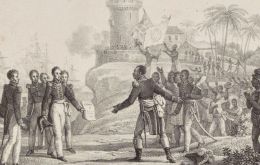
A large number of Latin American social organizations and personalities, such as Argentine 1980 Nobel Peace Prize laureate Adolfo Pérez Esquivel, demanded Thursday that France recognize and compensate Haiti for the indemnity it imposed after the country's independence in 1804.
-
Saturday, February 1st 2025 - 10:25 UTC
Brazil: shocking slave-like labor figures released

Numerous businessmen and politicians were singled out in a Labor Ministry report on slave-like working conditions in South America's largest country, released this week, singled out numerous businessmen and politicians. Over the last three decades, over 65,500 people have been rescued from such a situation. In 2024 alone, 1,035 inspections were carried out, resulting in 2,004 people being rescued, as the local feebleness of human rights was once again exposed.
-
Friday, November 22nd 2024 - 10:02 UTC
Brazil issues apology to black population for slavery

The Brazilian Government of President Luiz Inácio Lula da Silva Thursday issued an apology to the black population for subjecting their ancestors to slavery, which still has consequences in modern-day society. In his message, Attorney General Jorge Messias underlined the need to combat racial discrimination.
-
Wednesday, October 16th 2024 - 08:33 UTC
PM Starmer, “paying reparations for slave trade, not in the Commonwealth agenda”
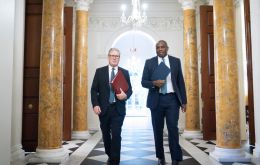
“Just to be clear, reparations are not on the agenda for the Commonwealth heads of government meeting. Technically, the (UK) Government's position on this has not changed. We do not pay reparations,” said Downing Street official spokesperson, when asked what PM Keir Starmer's view on paying reparations for Britain's involvement in the slave trade was.
-
Sunday, August 27th 2023 - 15:41 UTC
Guyana: Former slave-owning British PM family apologies not enough
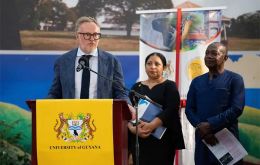
Activists were not entirely satisfied with Friday's apology speech by a descendant of former British Prime Minister and slave exploiter/trader William Gladstone at the University of Guyana and insisted reparations worth around US$ 1.2 trillion were due as messages along the lines of “our ancestors deserve real justice” became rife.
-
Monday, April 3rd 2023 - 09:57 UTC
Brazil: 4 Argentine workers rescued from slavery conditions
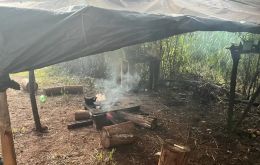
Four Argentines working in slavery conditions were rescued by Brazil's Federal Police Saturday in Nova Petrópolis, 90 kilometers from Porto Alegre, according to an O Globo report which also mentioned that the group had been abandoned by their employers in a rural property without resources or food. Among the victims was a 14-year-old minor. A suspect was arrested.
-
Thursday, January 7th 2021 - 09:45 UTC
Brazilian leading meatpackers linked to ranches that use slave labor
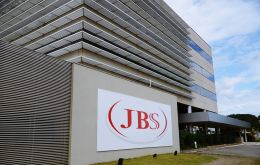
An investigation published this week showed six Brazilian meatpacker firms bought cattle from ranches that used slave labor. Labor experts suggested on Wednesday that the firms must clean up their supply chains.
-
Wednesday, July 15th 2020 - 08:32 UTC
Nestlé and Cargill face demands from slave descendants of Ivory Coast cocoa farms
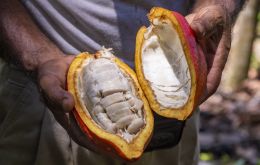
The US Supreme Court will decide whether American corporations can be sued for alleged human rights abuses occurring abroad under a 1789 law, agreeing to hear appeals by two companies: Cargill Inc and a Nestle SA subsidiary: accused of knowingly helping perpetuate slavery at Ivory Coast cocoa farms.
-
Friday, June 19th 2020 - 11:30 UTC
Lloyd's of London apologizes for its “shameful” role in the Atlantic slave trade

The Lloyd’s of London insurance market has apologized for its “shameful” role in the 18th and 19th Century Atlantic slave trade and pledged to fund opportunities for black and ethnic minority groups.
-
Monday, August 5th 2019 - 09:07 UTC
Telefonica Brazil and three sub contractors responsible of engaging slave labor

Leading mobile company Telefonica Brasil and three firms in its supply chain have been found guilty of engaging in slave labor, authorities said this week. A panel of labor judges in Espirito Santo state ruled that Telefonica, publicly traded as Vivo in Brazil, was guilty after workers toiled in slavery-like conditions during the building of a cellphone tower in 2014.
